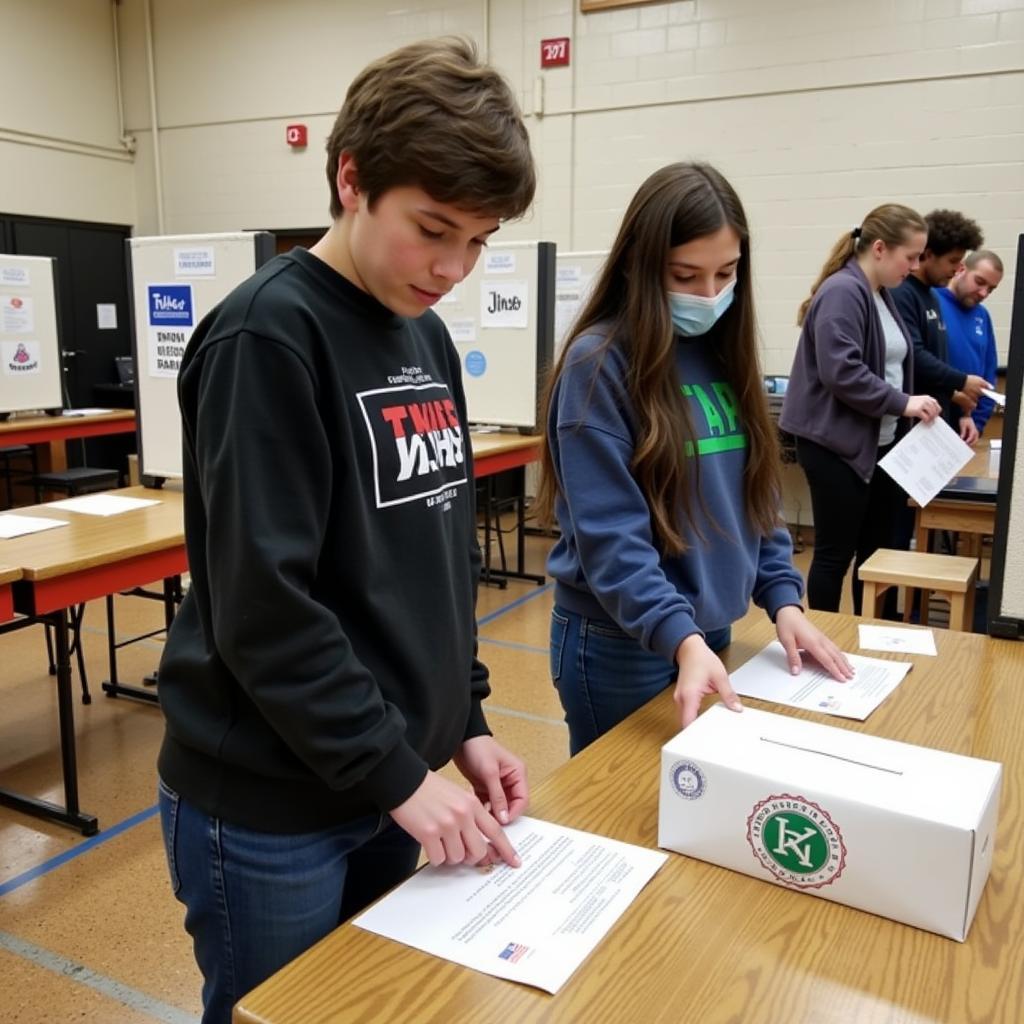The topic of lowering voting age to 16 has been increasingly appearing in IELTS Writing Task 2 exams since 2019. Based on analysis of past exam papers, this topic typically emerges 2-3 times per year, particularly in countries considering voting age reforms like New Zealand and Scotland. Let’s examine a recent exam question on this theme.
Question Analysis
Some people believe that the minimum voting age should be lowered to 16 in all countries. To what extent do you agree or disagree with this statement?
This is a direct agree/disagree question requiring a clear position on whether 16-year-olds should be given voting rights. Key aspects to address include:
- Political maturity of teenagers
- Democratic participation
- Social responsibility
- Impact on electoral systems
Band 8.5 Sample Essay
While there are compelling arguments for increasing youth participation in democracy, I firmly disagree with the proposal to lower the voting age to 16 universally. I believe this would be premature and potentially problematic for several reasons.
Firstly, at 16, most young people are still developing their political understanding and critical thinking abilities. Research shows that the prefrontal cortex, responsible for complex decision-making, continues developing until age 25. Without fully matured cognitive capabilities, teenagers may be more susceptible to manipulation through social media and emotional appeals rather than making well-reasoned political choices.
Moreover, 16-year-olds generally lack real-world experience in areas directly affected by political decisions. Most have not yet entered the workforce, paid taxes, or managed household finances – experiences that provide crucial context for understanding political policies’ practical implications. This limited life experience could lead to voting based on idealistic assumptions rather than practical realities.
However, I acknowledge that many 16-year-olds show keen interest in political issues, particularly regarding climate change and social justice. Nevertheless, there are better ways to channel this engagement than premature voting rights. Schools could implement mock elections, youth parliaments, and civic education programs to develop political literacy while preparing teenagers for future voting responsibilities.
In conclusion, while youth political engagement should be encouraged, lowering the voting age to 16 would be counterproductive. The focus should instead be on preparing young people to become informed voters when they reach political maturity at 18.

Band 6.5 Sample Essay
I disagree with lowering the voting age to 16 because I think teenagers are too young to vote. There are several reasons for my opinion.
First, most 16-year-olds don’t understand politics very well. They are still in school and learning about basic things. They might vote for wrong reasons like following their friends or copying what social media says. This is not good for democracy.
Second, teenagers don’t have much experience in real life. They don’t work full time or pay bills. How can they know which policies are good for the economy if they never had a job? Most of them live with their parents and don’t know about adult responsibilities.
Also, I think 16 is too young for such a big responsibility. Many teenagers change their minds quickly and make emotional decisions. Voting is very important and needs careful thinking. Even 18 is sometimes too young for some people to vote wisely.
In conclusion, I believe the voting age should stay at 18 because teenagers need more time to learn about politics and gain experience. Maybe they can join youth groups or school councils instead to learn about democracy.
Analysis of Band Scores
Band 8.5 Essay Features:
- Sophisticated vocabulary and complex structures
- Clear, logical progression of ideas
- Well-developed arguments with specific examples
- Cohesive devices used naturally
- Academic tone maintained throughout
Band 6.5 Essay Features:
- Basic but clear arguments
- Simple but accurate language
- Limited range of complex structures
- Some repetition of ideas
- Less sophisticated examples
Key Vocabulary
- prefrontal cortex (n) /ˌpriːˈfrʌntl ˈkɔːteks/ – the front part of the brain responsible for complex behavior
- susceptible (adj) /səˈseptəbl/ – likely to be influenced or harmed by something
- civic education (n) /ˈsɪvɪk ˌedʒuˈkeɪʃn/ – education about citizens’ rights and duties
- counterproductive (adj) /ˌkaʊntəprəˈdʌktɪv/ – having the opposite effect to what is intended
- political literacy (n) /pəˈlɪtɪkl ˈlɪtərəsi/ – knowledge and understanding of political matters
Practice Suggestions
Consider practicing with these related topics:
- Should social media platforms require users to be 18+?
- What age should people be allowed to run for political office?
- Should 16-year-olds be given more legal rights and responsibilities?
Share your practice essays in the comments for feedback and discussion with other learners.